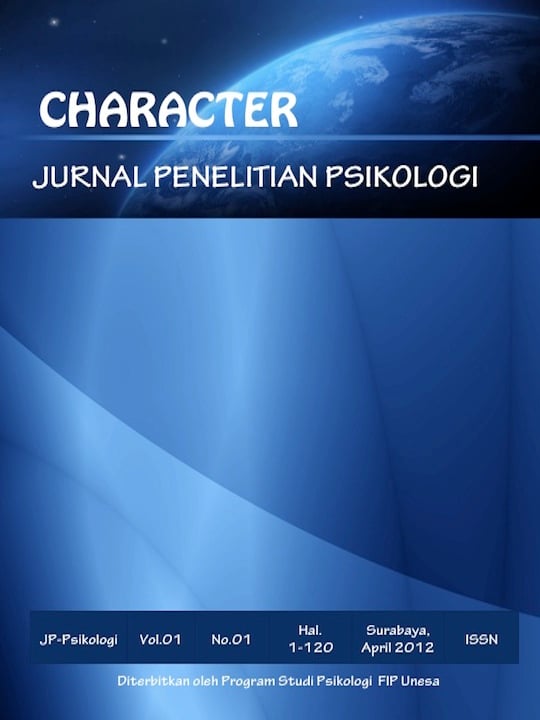HUBUNGAN ANTARA DUKUNGAN SOSIAL DENGAN STRES AKADEMIK PADA MAHASISWA DI MASA PANDEMI COVID-19
DOI:
https://doi.org/10.26740/cjpp.v8i9.48038Abstract
AbstrakCovid-19 memiliki berbagai dampak khususnya yang terjadi di Indonesia. Salah satu dampaknya di bidang pendidikan, para pelajar dilarang untuk melakukan pembelajaran secara tatap muka untuk menghindari kontak langsung yang dapat mempermudah penyebaran Covid-19. Oleh karena itu, para peserta didik diwajibkan untuk melakukan pembelajaran jarak jauh (PJJ) untuk meminimalisir adanya penyebaran Covid-19 dengan menggunakan berbagai aplikasi seperti zoom, google meet, google classroom, whatsapp group, dan berbagai aplikasi lainnya. Penelitian ini bertujuan untuk mengetahui hubungan antara dukungan sosial dengan stress akademik pada mahasiswa di masa pandemi Covid-19. Penelitian ini merupakan penelitian kuantitatif. Subjek penelitian ini merupakan mahasiswa aktif jurusan psikologi Universitas Negeri Surabaya yang terbagi dalam dua kelompok yaitu subjek tryout dengan jumlah 30 mahasiswa dan subjek penelitian yang berjumlah 231 orang. Data dikumpulkan dengan menggunakan skala persepsi dukungan sosial dan skala stress akademik. Data kemudian dianalisis dengan menggunakan uji korelasi menggunakan pearson product moment. Hasil dari analisa data menunjukan bahwa nilai koefisien korelasi sebesar 0,842 dan signifian sebesar 0,000 (p < 0,05). Hasil menunjukan bahwa terdapat hubungan yang negatif antara dukungan sosial dan stress akademik yang berarti apabila dukungan sosial yang dirasakan mahasiswa tinggi, maka stress akademik yang dirasakan mahasiswa tersebut rendah. Sebaliknya, jika dukungan sosial yang dirasakan mahasiswa tersebut rendah, maka stres akademik yang dirasakan mahasiswa oleh mahasiswa tersebut tinggi.
Kata Kunci: Dukungan Sosial, Stres Akademik, Covid-19.
Abstract
Covid-19 has had various impacts, especially in Indonesia. One of the impacts in the field of education is that students are prohibited from conducting face-to-face learning to avoid direct contact that could facilitate the spread of Covid-19. Therefore, students are required to conduct distance learning (PJJ) to minimize the spread of Covid-19 by using various applications such as zoom, google meet, google classroom, whatsapp group, and various other applications. This study aims to determine the relationship between social support and academic stress in students during the Covid-19 pandemic. This research is a quantitative research. The subjects of this study were active students majoring in psychology at the State University of Surabaya which were divided into two groups, namely the tryout subject with a total of 30 students and the research subject totaling 231 people. Data were collected using the perceived social support scale and the academic stress scale. The data were then analyzed using a correlation test using Pearson's product moment. The results of the data analysis showed that the correlation coefficient value was 0.842 and the significance was 0.000 (p < 0.05). The results show that there is a negative relationship between social support and academic stress, which means that if the social support felt by students is high, the academic stress felt by students is low. On the other hand, if the social support felt by the student is low, then the academic stress felt by the student is high.
Keywords: Social Support, Academic Stress, Covid-19.
Downloads
Downloads
Published
How to Cite
Issue
Section
License
Authors who publish in this journal agree to the following terms:
Copyright in any article is held by the author.
The author grants the journal, publication rights with the work simultaneously licensed under a Creative Commons Attribution License that allows others to share the work with an acknowledgment of the work's authorship and initial publication in this journal.
Authors may enter into separate, additional contractual arrangements for the non-exclusive distribution of the journal's published version of the work (e.g., posting it to an institutional repository or publishing it in a book), with an acknowledgment of its initial publication in this journal.
Authors are permitted and encouraged to post their work online (e.g., in an institutional repository or on their website) prior to and during the submission process, as this can lead to productive exchanges, as well as earlier and greater citation of published work.
 Abstract views: 2011
,
Abstract views: 2011
, PDF Downloads: 3082
PDF Downloads: 3082





